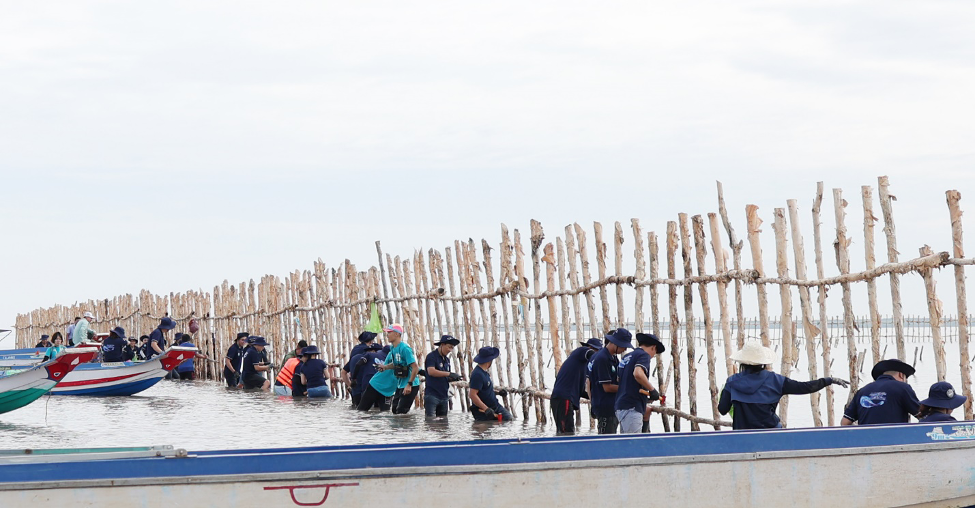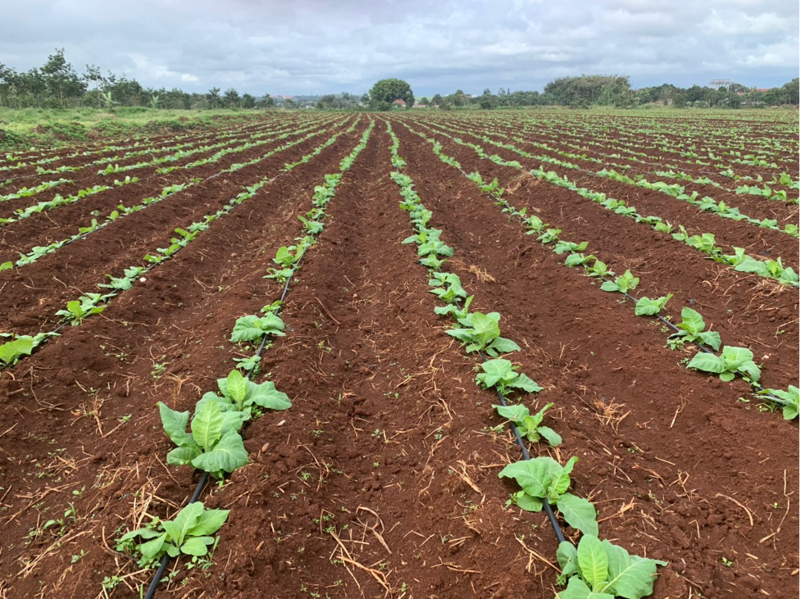Nature-based Solutions (NbS) are defined by the International Union for the Conservation of Nature (IUCN) as actions to protect, sustainably manage, and restore natural or modified ecosystems. These solutions address societal challenges effectively and adaptively while simultaneously providing human well-being and biodiversity benefits.
Some environmental and social issues that can be addressed by Nature-based Solutions include climate change mitigation and adaptation, water security, food security, and disaster risk reduction. The United Nations’ Climate Action Summit in 2019 featured Nature-based Solutions as an effective method to tackle climate change.
Today, many businesses are actively applying Nature-based Solutions to minimize their environmental impact, promote natural recovery and protection, and create positive social value. These efforts aim for the goal of sustainable development.
At the 7th Training Program for Media Agencies on Sustainable Development, organized by the Vietnam Business Council for Sustainable Development (VBCSD) at the Vietnam Chamber of Commerce and Industry (VCCI), with the topic “Towards Sustainable Development and the Net Zero Goal through Nature-based Solutions (NbS)”, many businesses shared their strategies and initiatives in implementing NbS, along with their positive outcomes. In particular, Ms. Do Hoang Anh, Head of Corporate and Regulatory Affairs at the Vietnam Cluster of British American Tobacco (BAT), spoke about BAT Vietnam’s program to build sustainable material-growing areas and its activities to restore and protect biodiversity in Vietnam.
Protect, sustainably manage, and restore ecosystems
As a business committed to sustainability in Vietnam, BAT Vietnam focuses on balancing business development with environmental and social factors, especially sustainability in farming activities within its supply chain. BAT Vietnam’s production and business have a close relationship with material-growing areas.
BAT Vietnam closely coordinates with its suppliers and farmers to implement environmental management in harvesting and material processing activities through practical initiatives. These include land and water resource management, climate change response, and biodiversity conservation.
To manage land resources in farming activities, BAT Vietnam conducts soil sample analysis, developing a suitable fertilizer regime to limit fertilizer loss and applying lime to improve soil pH and fertilizer efficiency. In water resources management, BAT Vietnam has researched and tested a drip irrigation system since 2021, saving about 1,200 cubic meters of water per hectare, which is about 25 per cent more efficient than traditional furrow irrigation. The company aims for 100 per cent of the irrigated area to use drip irrigation by 2025.
BAT Vietnam has also implemented Nature-based Solutions to cope with climate change. It has worked with its suppliers to use sustainably-traceable curing fuels. Its semi-automated loose leaf barns, deployed in 2021, save about 33 per cent of curing fuel compared to traditional manual barns. Additionally, BAT Vietnam is testing electric loose leaf barns powered entirely by electricity, which helps reduce carbon dioxide emissions and minimize deforestation risks.
In addition to efforts within its supply chain, BAT Vietnam promotes the conservation and protection of biodiversity and ecosystems. The company adheres to the BAT Group’s new biodiversity standards, which include regulations to prevent deforestation, ensure sustainable curing fuel traceability, and manage biodiversity positively.
BAT Vietnam has also partnered with the Gaia Nature Conservation Center in an afforestation project. This includes zoning 120 ha of mangrove forests in the Ca Mau Cape National Park in the Mekong Delta’s Ca Mau province, with nearly 450,000 mangrove trees expected to be grown by 2030, and covering 4 ha with 2,000 trees in the Dong Nai Cultural Nature Reserve in the southern province of Dong Nai. This afforestation program helps reduce greenhouse gas emissions, prevent erosion, enhance biodiversity, and provide benefits to local communities, and supports the BAT Group’s commitment to Carbon Neutrality by 2030 and Net Zero by 2050.

Creating a positive social impact
Nature-based Solutions adopted by BAT Vietnam create a positive social impact by improving incomes and ensuring the safety of farmers in its supply chain. To improve farmer incomes, BAT Vietnam has implemented the Ripe Top project, which focuses on producing high-quality, properly ripe leaves through technical practices, care, and fertilization. Farmers participating in this project can sell their products at a 10 per cent higher price per kilo, thereby increasing their incomes. The project, tested since 2022, has benefited over 120 people in the central highlands’ Dak Lak and Gia Lai provinces.
The company strictly enforces a zero-tolerance policy for child labor and forced labor in its supply chain, ensuring the health and safety of farmers by providing labor protection equipment and requiring its use during pesticide spraying and leaf harvesting.
BAT Vietnam believes that its environmental and social commitments will drive its sustainable business practices and contribute to the broader goal of sustainable development in Vietnam.









 Google translate
Google translate